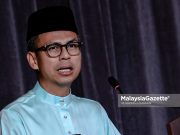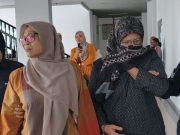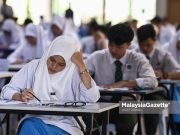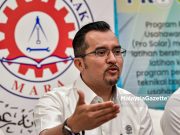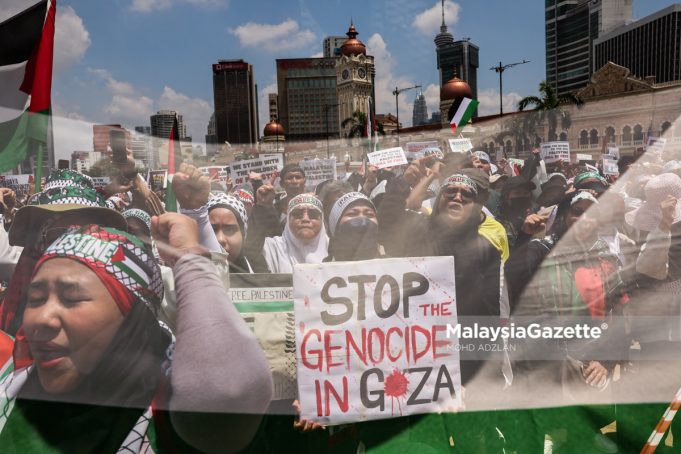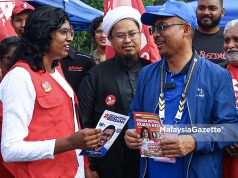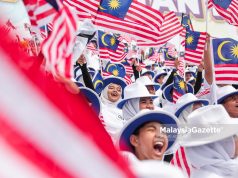By: Dr. Lim Ghee Seong, Dr. Zubaidah Zanul Abidin, Dr. Noor Hayati Raja Mohd
MALAYSIA, a nation known for its diverse cultural fabric, has seen a growing awareness and concern among its non-Muslim communities regarding the ongoing Israeli-Palestinian conflict. As the plight of Palestinians continues to capture global attention, the question of the role of non-Muslims globally, including Malaysia, in supporting the Palestinian struggle against Israeli occupation becomes increasingly relevant.
This is certainly apt today, as we observe the International Day of Solidarity with the Palestinian People annually on 29 November. In Malaysia particularly, where various ethnic and religious communities coexist, the issue transcends religious boundaries. Non-Muslims find themselves grappling with the moral imperative to stand in solidarity with the Palestinians, despite differences in faith. The key lies in fostering a shared understanding that the struggle for justice and human rights knows no religious distinctions.
One way non-Muslims in Malaysia can contribute to the cause is by raising awareness within their communities. Educating people about the historical context since the beginning of the occupation in 1948. Besides that, by creating the awareness it is an eye opener to us on the human rights violations by the Zionist, and the daily challenges faced by Palestinians as they have been denied access to recourses and basic amenities for a human being. This can create empathy and understanding on this crisis as the genocide is a clear violation of Fourth Geneva Convention in 1949.
The non-Muslim should made aware that the Zionist had destroyed the third oldest church in the world and the Christian population in Gaza have been reduced. This awareness can serve as a foundation for collective action and support towards Palestinians. Solidarity events, forums, and discussions that bring together Malaysians of diverse backgrounds can be instrumental in building a united front against injustice. By creating spaces for open dialogue, non-Muslims can contribute to the narrative, dispelling myths and fostering a shared commitment to human rights and justice as been advocate by all religions in the world.
Economic avenues also provide non-Muslims with a means to support the Palestinian cause. Advocating for responsible consumer choices, such as avoiding products linked to Israeli settlements, sends a powerful message. Additionally, promoting fair trade initiatives and supporting Palestinian businesses can contribute to economic empowerment within the Palestinian territories. Beyond economic measures, non-Muslims can engage in diplomatic advocacy. Malaysia, as a nation, can play a role in promoting international dialogue and cooperation.
Non-Muslim communities can lend their voices to call for diplomatic efforts, peace negotiations, and adherence to international law in addressing the Israeli-Palestinian conflict. Cultural exchange programs and people-to-people initiatives can foster a deeper understanding between Malaysians and Palestinians. Non-Muslim communities can actively participate in these exchanges, building bridges of empathy and solidarity that transcend religious and cultural differences.
It is essential to acknowledge that supporting the Palestinian cause does not mean adopting an anti-Semitic stance but instead an anti-Zionist stance. Non-Muslims in Malaysia can advocate for a just and peaceful resolution to the conflict, emphasizing the importance of dialogue and understanding between all parties involved. In conclusion, the role of non-Muslims in Malaysia in supporting the Palestinian struggle against Israeli occupation is multifaceted.
By raising awareness, fostering dialogue, making responsible consumer choices, engaging in diplomatic advocacy, and promoting cultural exchange, non-Muslim communities can contribute significantly to a more just and equitable world. In doing so, Malaysia can stand as a testament to the power of unity and shared humanity in the face of global challenges.
The authors are from the Department of Restorative Dentistry, Faculty of Dentistry, Universiti Malaya.

